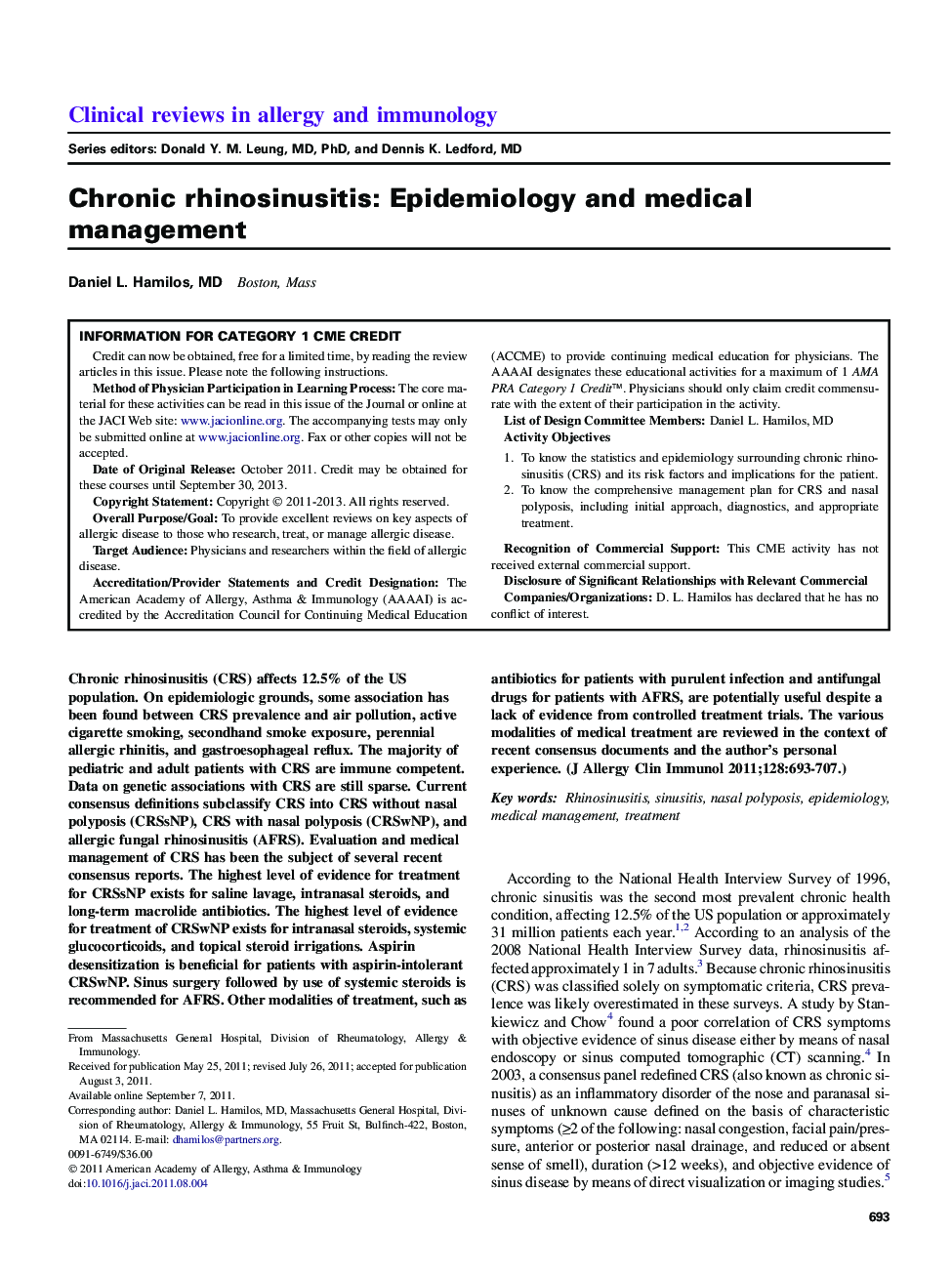| کد مقاله | کد نشریه | سال انتشار | مقاله انگلیسی | نسخه تمام متن |
|---|---|---|---|---|
| 3199428 | 1201913 | 2011 | 15 صفحه PDF | دانلود رایگان |

Chronic rhinosinusitis (CRS) affects 12.5% of the US population. On epidemiologic grounds, some association has been found between CRS prevalence and air pollution, active cigarette smoking, secondhand smoke exposure, perennial allergic rhinitis, and gastroesophageal reflux. The majority of pediatric and adult patients with CRS are immune competent. Data on genetic associations with CRS are still sparse. Current consensus definitions subclassify CRS into CRS without nasal polyposis (CRSsNP), CRS with nasal polyposis (CRSwNP), and allergic fungal rhinosinusitis (AFRS). Evaluation and medical management of CRS has been the subject of several recent consensus reports. The highest level of evidence for treatment for CRSsNP exists for saline lavage, intranasal steroids, and long-term macrolide antibiotics. The highest level of evidence for treatment of CRSwNP exists for intranasal steroids, systemic glucocorticoids, and topical steroid irrigations. Aspirin desensitization is beneficial for patients with aspirin-intolerant CRSwNP. Sinus surgery followed by use of systemic steroids is recommended for AFRS. Other modalities of treatment, such as antibiotics for patients with purulent infection and antifungal drugs for patients with AFRS, are potentially useful despite a lack of evidence from controlled treatment trials. The various modalities of medical treatment are reviewed in the context of recent consensus documents and the author’s personal experience.
Journal: Journal of Allergy and Clinical Immunology - Volume 128, Issue 4, October 2011, Pages 693–707